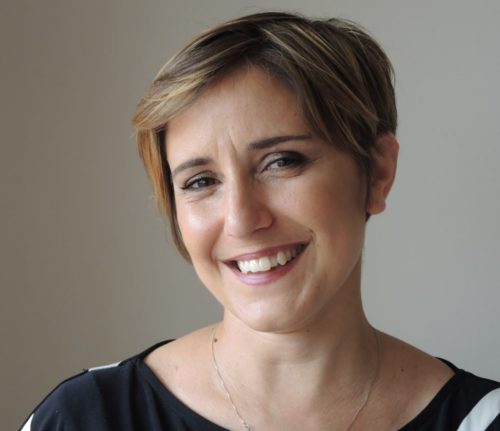This website uses cookies so that we can provide you with the best user experience possible. Cookie information is stored in your browser and performs functions such as recognising you when you return to our website and helping our team to understand which sections of the website you find most interesting and useful.
The European Union: Helping people win their races and achieve their goals
 “I owe my career to the accommodations that the European Union made for me when undertaking the entry competition,” says Cecilia Maria Longo, who is a Financial Assistant in the Digital Services Directorate General, focusing on procurement.
“I owe my career to the accommodations that the European Union made for me when undertaking the entry competition,” says Cecilia Maria Longo, who is a Financial Assistant in the Digital Services Directorate General, focusing on procurement.
She goes on to note that when she graduated in Political Science, Development Studies and Human Rights, it was at precisely the wrong time. “The financial crash had just taken place,” she recalls, “so it was very difficult to find any job – particularly with an NGO. As a result, I changed direction and became a civil servant.”
Cecilia has multiple sclerosis: a permanent illness that can lead to having a disability. This means she suffers from considerable medical fatigue and cannot walk long distances – even 300 metres can be challenging. “There are also less obvious effects,” she notes, “such as a tingling in my fingers, which seems to get worse when I am under pressure: on some days it is difficult to type and sometimes even picking up a pen can feel like an impossible task.”
When she applied to the EU, she was allowed longer breaks between parts of the examination and extra time to type her answers, which made all the difference. Her disability has presented some challenges during her subsequent career, but her managers have always gone the extra mile to assist her.
“They’re not rigid about core hours, which is extremely important as I typically have up to four sessions of physiotherapy in a week,” Cecilia says. “The building here has some very long corridors, which can mean seven to ten minutes’ walk for me to get from one side to the other or to the canteen. However, we always have full-time ushers on duty and it only takes one call to arrange wheelchair assistance, which makes my life so much easier and less stressful. This has also boosted my social life, as I’m now far more comfortable accepting invitations to meet people for lunch.”
Cecilia concludes that people with a disability who are thinking of joining the EU should ask for the accommodations they need: “There’s no reason to be shy, as they will go the extra mile for you. The rewards are significant too: this is an amazing environment in which to work. It’s truly multicultural, and you will get to befriend and collaborate with people from all over Europe and beyond. The team is very open and accepting here, so there’s nothing to be afraid of, and the Council of the EU has a traineeship programme specifically for people with disabilities, which has been a huge success so far. The way I look at it is that we’re all running in the same race, but the starting point can’t be the same if people’s situations are very different.”
